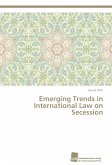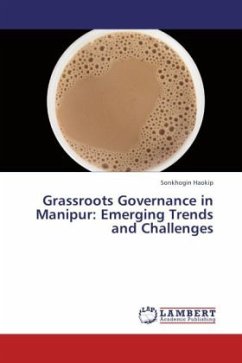Obesity is a burgeoning epidemic in the United States affecting over 30% of the adult population. Additionally, nearly two-thirds of the population is overweight. Fifteen percent of children ages 6-19 are considered obese. Over the past twenty years, the percentage of Americans classified as obese has doubled to represent roughly 180 million people. Obesity is a prominent and much-debated topic in current American culture. What is government at all levels doing to address the obesity epidemic? Most importantly, should the government be legislating and regulating issues related to obesity, weight, physical activity, and food supply content? This work examines those fundamental questions first by detailing the emergence of the obesity policy domain, then discussing what actions the government has taken at all levels and what other interests are involved in this public policy area.
Bitte wählen Sie Ihr Anliegen aus.
Rechnungen
Retourenschein anfordern
Bestellstatus
Storno








